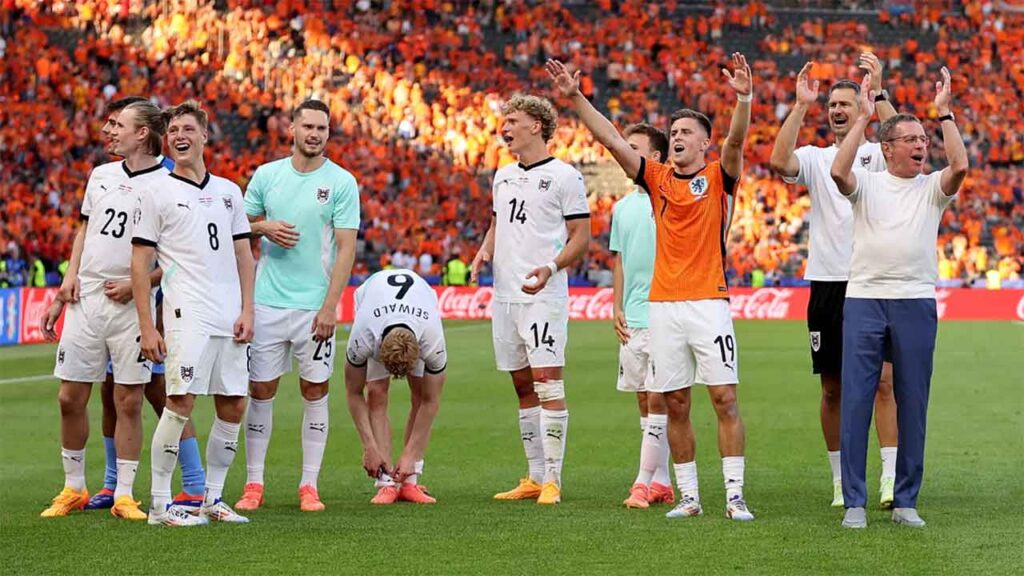Let’s talk a little about Euro 2024. In a surprising twist, Austria topped the final standings of Group D, outscoring and outpacing two former European champions, France and the Netherlands. They didn’t have any superstar players, yet, with a roster full of “second-tier” European players, Austria’s coach, Ralf Rangnick, created a harmony that the other teams in Group D couldn’t match. As quoted by Kompas.id, Rangnick managed to build a sense of equality within the Austrian squad, allowing them to show cohesion on the field.
In sports (like football), business, and creative projects, the concept of a “star player” often takes center stage. These individuals, with their exceptional skills and charisma, can single-handedly lead a team to success. But not every team has such extraordinary talent—just like Austria’s national team. Many leaders find themselves heading teams made up of individuals with average, rather than exceptional, abilities. Leading a team without stars can be challenging, but it also presents a unique opportunity to develop collective potential and achieve amazing results.
The Magic of a Starless Team
The magic of a team starless team or teams without standout players often rely on more evenly distributed skills and contributions. This can lead to a more collaborative environment where every member feels their role is crucial to the team’s success. The absence of a star shifts the focus from individual brilliance to collective effort, which can be a real advantage.
So, what are these advantages? First, increased collaboration. Without one person dominating, team members are more likely to engage in open communication and cooperation. Second, responsibility is shared more equally, encouraging everyone to take ownership of their tasks and contribute to the team’s goals. Third, a team without stars often has a broader range of skills and perspectives, leading to innovative solutions and creative problem-solving.
The foundation of success for a team without stars lies in a culture of inclusion and respect. Every member should feel valued and recognized for their contributions. Here, it’s the leader’s job to acknowledge and appreciate the hard work and achievements of all team members. This not only boosts morale but also reinforces the importance of each individual’s role. Next, leaders should foster open communication where team members can express their ideas, concerns, and feedback without fear. This builds a sense of belonging and mutual respect. Trust is also key, as it makes collaboration more effective.
In a star-less team, it’s crucial to identify and leverage the unique strengths of each member, without overlooking their weaknesses. This can be achieved through skill assessments, targeted training, and role optimization. Skill assessments help you understand each team member’s strengths, weaknesses, and potential, guiding task allocation and development plans. Targeted training aims to help team members overcome specific weaknesses and prepare for future challenges. Role optimization means assigning roles and responsibilities based on individual strengths and interests, boosting efficiency, job satisfaction, and motivation.
Empowerment is a key element in leading a team without stars. When team members feel empowered, they’re more likely to take initiative and contribute to the team’s success. How do you empower them? By delegating tasks and responsibilities with trust and confidence. Also, give team members the freedom to carry out their tasks in their own way. This fosters creativity and innovation while building confidence and competence. Encourage calculated risk-taking and view mistakes as learning opportunities. This helps create a growth mindset and drives continuous improvement.
Leading by example is crucial in a star-less team environment. Be honest, ethical, and consistent. Integrity builds trust and respect. Stay committed to the team’s goals and values. Maintain a positive attitude, especially during tough times. Optimism and resilience can motivate the team to persevere and overcome obstacles.
Celebrate every success and achievement, no matter how small. Recognizing accomplishments reinforces the value of hard work and motivates the team to keep striving for excellence.
Back to Euro 2024—whatever the outcome, what Austria has achieved so far is pretty phenomenal. Rangnick’s words are worth reflecting on for any team leader, in any field. According to Rangnick, “It’s important for us to build a team that can truly be called a ‘team.’ Even when going through tough times, they need to stay united, play, and fight together to rise up. For me, that’s the most important thing for a team.” He said this in his final interview with Manchester United’s star-studded squad before officially accepting Austria’s offer in May 2022.
Category: Leadership
#euro2024
#austria
#ralfrangnick
#leadership
#starless
Related Posts:
The Rise of Fractional Leadership: Executives Who Work Part-Time for Multiple Organizations
Micromanaging vs Empowering: Leadership Styles that Transform Engagement into Empowerment
Buzzword Leader vs. Truly Engaged Leadership
The Need for Charismatic Leadership in Business Transformation?
How to Quickly Improve Successor Competence Through Effective On-the-Job Training










